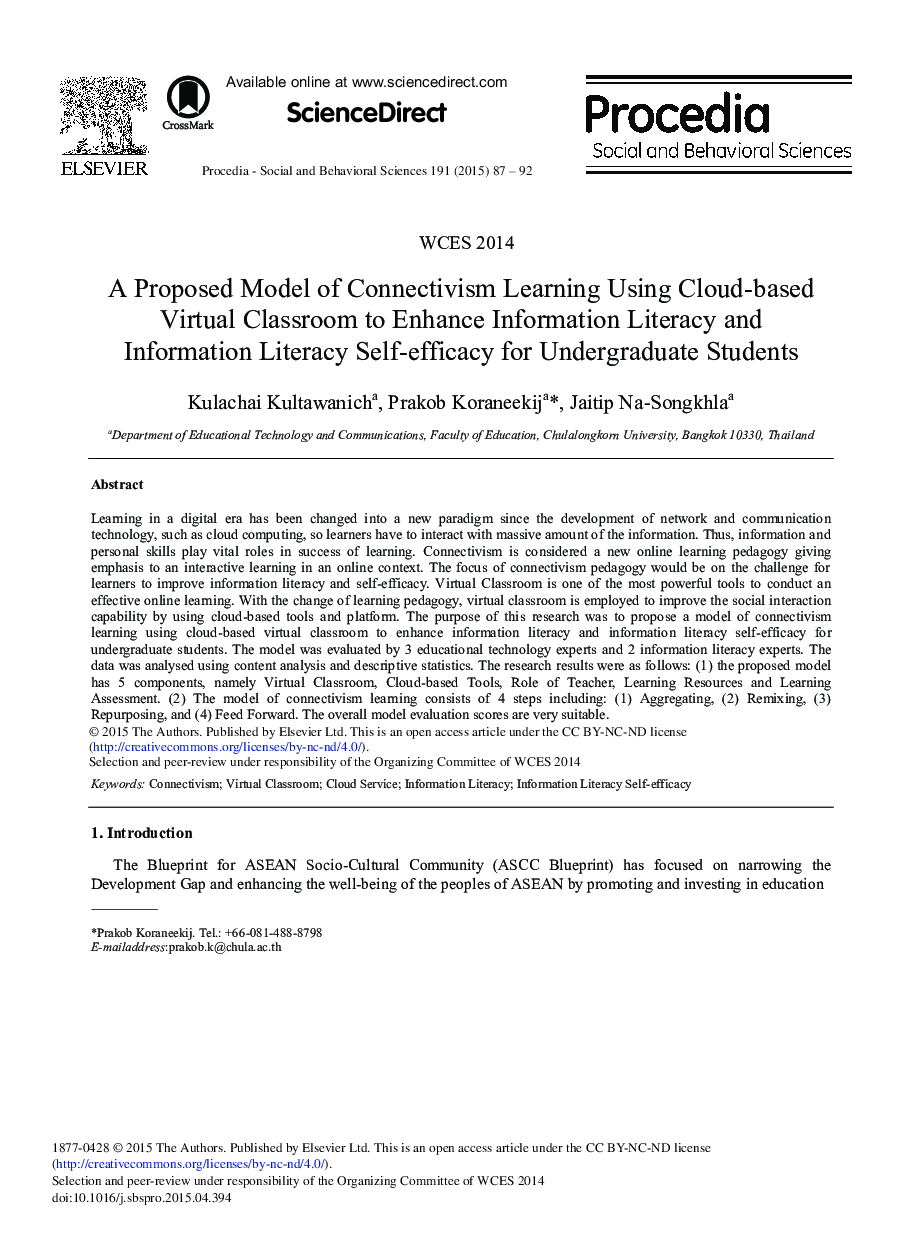| کد مقاله | کد نشریه | سال انتشار | مقاله انگلیسی | نسخه تمام متن |
|---|---|---|---|---|
| 1109338 | 1488368 | 2015 | 6 صفحه PDF | دانلود رایگان |
Learning in a digital era has been changed into a new paradigm since the development of network and communication technology, such as cloud computing, so learners have to interact with massive amount of the information. Thus, information and personal skills play vital roles in success of learning. Connectivism is considered a new online learning pedagogy giving emphasis to an interactive learning in an online context. The focus of connectivism pedagogy would be on the challenge for learners to improve information literacy and self-efficacy. Virtual Classroom is one of the most powerful tools to conduct an effective online learning. With the change of learning pedagogy, virtual classroom is employed to improve the social interaction capability by using cloud-based tools and platform. The purpose of this research was to propose a model of connectivism learning using cloud-based virtual classroom to enhance information literacy and information literacy self-efficacy for undergraduate students. The model was evaluated by 3 educational technology experts and 2 information literacy experts. The data was analysed using content analysis and descriptive statistics. The research results were as follows: (1) the proposed model has 5 components, namely Virtual Classroom, Cloud-based Tools, Role of Teacher, Learning Resources and Learning Assessment. (2) The model of connectivism learning consists of 4 steps including: (1) Aggregating, (2) Remixing, (3) Repurposing, and (4) Feed Forward. The overall model evaluation scores are very suitable.
Journal: Procedia - Social and Behavioral Sciences - Volume 191, 2 June 2015, Pages 87-92
